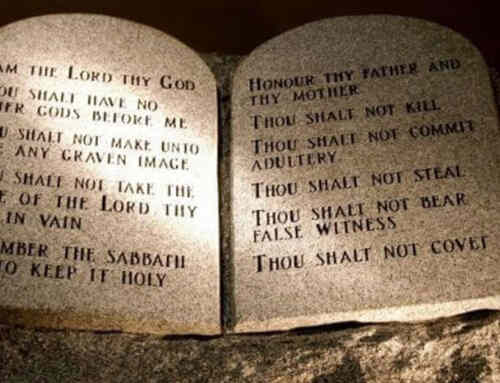The word “passover” appears in the Old Testament 49 times and is translated from the Hebrew word, Strong’s Exhaustive Concordance #6453 pecach, derived from a primitive root word meaning “to pass over.”
This word first occurs in Exodus 12. Moses told Pharoah to let His people leave Egypt. Pharoah would not, so God sent various plagues on Egypt. The last of these plagues was the death of the firstborn. In verses 12 and 13, God says He will go through the land and smite all the firstborn, but He will ‘pass over’ those houses where the blood is, and the firstborn in those houses will be saved from the plague. This blood was from the lamb that was slain. The lamb meat was eaten, and its blood was put on the doorposts and lintels to protect the firstborn of the household.
In Exodus 34:25, the Passover remembrance is referred to as the Feast of Passover.
It is called the “LORD’s Passover” in Leviticus 23:5. Numbers 9 references “keeping the Passover” and the “ordinance of the Passover.” Additionally, Deuteronomy 16 refers back to this concept when it discusses “sacrificing the Passover.”
Therefore, depending on context, the word “Passover” can mean the lamb that was slain in sacrifice which protected the firstborn from the death penalty and ultimately freed Israel from bondage in Egypt. It can also mean the holiday which commemorates the event in Egypt, as well as God’s rules for how Israel is to commemorate that event (when the lamb is to be slain, how it is to be cooked, removal of leaven from the house, etc.).
The Passover is incredibly relevant in the New Testament, and therefore to the Christian today. We know from Revelation 13:8 that Jesus is referred to as the “Lamb slain from the foundation of the world,” and he shed his blood for the remission of sins, not just for those who follow him, but for all born in Adam. The literal Old Testament events beautifully picture Jesus’ role in delivering the human race out of the bondage of sin and death into the promised land of God’s kingdom.
Additional Resource:
Christian Questions Podcast
Episode #1224: “Why Should Christians Care About Israel’s Deliverance From Slavery?”
Absorbing the profound lessons Israel’s Passover teaches about Jesus
Preview Video
CQ Rewind Show Notes















